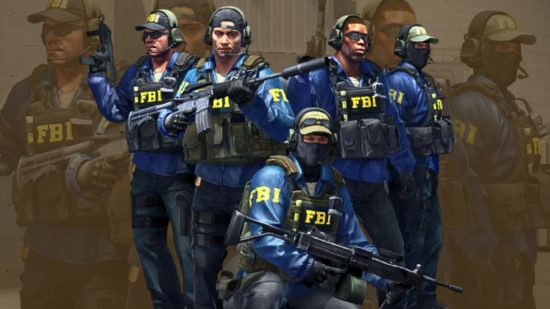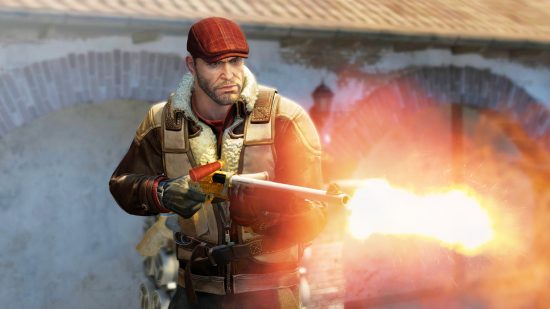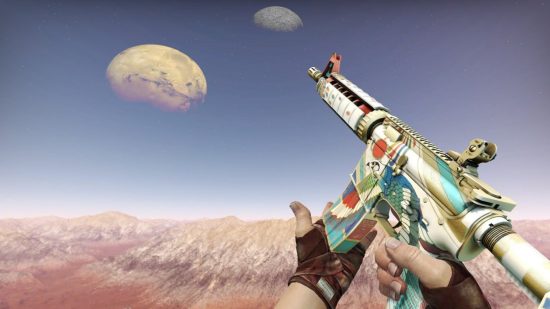Taking risky action hoping for a desired result. That’s the definition of gambling, and if you’re a CSGO skin lover with a credit card, it’s something you might have done pretty regularly. Buying a CSGO cheap case, spinning the slots, praying to the RNG gods for that rare, glittering skin you can sell for a pretty penny later. I’m not complaining. After all, who doesn’t like some extra cash through risky means? But it all changes when you’re a parent, and your kids’ favorite FPS game potentially exposes them to softcore gambling.
CSGO is no longer ‘just a shooter game’
Valve’s FPS recently shattered the record for the highest number of concurrent players, reaching a staggering 1.8 million. But, CSGO being the king of FPS games, had little to do with this new milestone. Instead, thousands of traders logged back into their Steam accounts to cop the Pick’Em Challenge Pass that warrants rare rewards – items that later turn into virtual or gambling currency.
Don’t get me wrong, CSGO is the greatest thing to happen to the FPS genre, but its lucrative skin market is a big red flag. Many video games have virtual skins, but no FPS as big as CSGO allows the trading of in-game items on third-party websites. Despite’s Valve efforts to shut down shop, many shady websites are still running with no regard for underage players. If you’re signing in with a Steam account, some of these gambling websites won’t even bother verifying your age.
Forget the shady third-party websites. Multiple CSGO players under giant esports organizations started when they were barely 18, and some of these organizations have proud gambling sponsors. It’s not a terrible thing; CSGO and trading go hand in hand. But marketing gambling to a young audience isn’t a good look, either. For example, G2 recently celebrated its gambling sponsor with Ilya’ m0NESY’ Osipov, who had just turned 18. The high-production video was released a day after his birthday, showcasing m0nsey flashing his newly claimed 18+ ID and marveling at the gambling world, featuring virtual CSGO skins
Skins = wins 📈 pic.twitter.com/aJxwCWuMzI
— G2 CS (@G2CSGO) May 2, 2023
CSGO is unrestricted to kids as young as ten with full access to in-game slots, AKA case openings.
Gambling is skin market’s bread and butter
Even if you cut out third-party websites, esports betting, and online slots from the equation, CSGO still has an element of gambling within the game used by thousands of underage players. So when you open a CSGO case, you’re basically forking over some cash in exchange for a shot at getting something scarce. But you never know if what you get will actually be worth more than what you paid for the case.
For underage kids, this is serious gambling. Recently, when Valve tore the curtain on Anubis, players went gaga over the fact that they could buy as many cases as possible. So popular YouTuber Mark ‘Ohnepixel’ opened 1000 cases, each priced at $1.74, but locked in the case is the Eye of Horus skin worth $1,200. The opportunity to “turn $2 into $1200” with just a few clicks can be incredibly tempting for a kid with their mom’s credit card.
Now, it’s a fact that CSGO has one of the best skin markets and inventory systems, but gambling has become so intertwined with CSGO that it’s hard to imagine one without the other. And that’s a cause for concern.
With CSGO staring at a potential 2 million mark, a whole new wave of NFT traders and virtual item enthusiasts are flocking to the scene. Whether that’s a good thing or a bad thing is a debate for another day, but one thing’s for sure – CSGO is no longer just a run-of-the-mill shooter video game.
If you want to play CSGO solely for fun, check out the best CSGO launch options in 2023 and how exactly the CSGO rank MM works before starting your ranked game.


